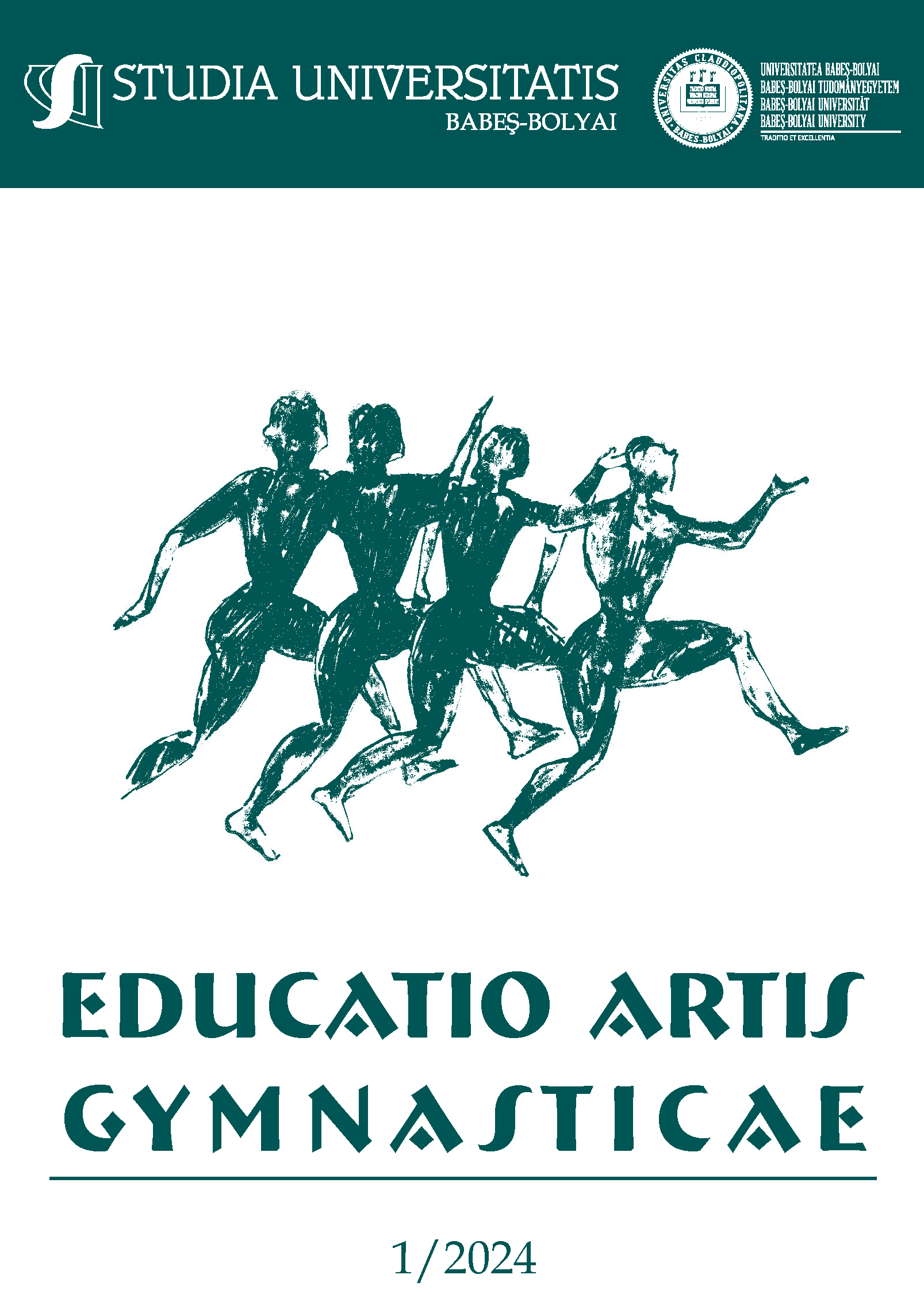THE CRITICAL THINKING IN PHYSICAL EDUCATION AND SPORTS TEACHERS
DOI:
https://doi.org/10.24193/subbeag.69(1).04Keywords:
Critical Thinking, PHE Teachers, Professionalism inking to the professional status of these teachers.Abstract
The inner world of the teacher of physical education and sports has become a determining variable in the understanding and justification of the pedagogical act of these professionals. Thus, the critical thinking of these social actors is presented as a privileged indicator likely to reflect not only the mental processes at stake by these teaching professionals but also the nature of the issues on which they deliberate the most often during the teaching-process learning. The present study tries, first, to describe the form and substance of critical thinking deployed by physical education and sports teachers (PES), then to analyze the relationship of this form of thinking and the teaching process.
Received 2023 November 17; Revised 2024 January 08; Accepted 2024 January 09;
Available online 2024 May 10; Available print 2024 May 10
References
Abdarahmane, B. & Atallah, A. (2022). Factor Analysis of a Tool for Measuring the Teaching Competence of Algerian University Professors. Journal Physical Education and Sports, 9 (01), 55-72.
Atallah, A. & Bengueneb, A. (2021). The Competence of Professors of the Physical and Sports Education in the Use of Modern Teaching Strategies for Middle School Under the Second Generation Curriculum. Journal Acta Facultatis Educationis Physicae Universitatis Comenianae, 61 (01), 52-61.
Calderhead, J. & Gates, P. (Eds) (1993). Conceptualizing Reflection in Teacher Development. London: The Falmer Press. https://doi.org/10.4324/9780203209851.
Calderhead, J. (1989). Reflecting teaching and teacher education. Teaching and Teacher Education, 5 (1), 43-51. https://doi.org/10.1016/0742-051X(89)90018-8.
Crum, B.J. (1995). The Urgent Need for Reflective Practice. In C. Paré (Ed.). Better Physical Education? Think about it! Proceedings of the International Seminar on the Training of Teachers in Reflective Practice in Physical Education. Trois-Rivières: Department of Human Kinetics, 1-20. http://hdl.handle.net/10045/21759.
Daniel, M. F. (2001). Philosophical dialogue among peers: A study of manifestations of critical thinking in pre-service teachers. Advances in Health Sciences Education, 6, 49-67 DOI: 10.1023/a:1009827102022.
Durand, M. (1996). Teaching in Schools. Presses Universitaires de France. https://doi.org/10.7202/502022ar.
Florence, J., Brunelle, J. & Carlier, G. (1998). Teaching physical education in high school. Motivate, help to learn, live an educational relationship. De Boeck University and Les Presses de l’Université Laval. https://doi.org/10.4000/corpsetculture.654.
Haiman, A. (2017), Teaching Skills Calendar for Basic Stage Sports Education Teacher Alexandria. Al Wafa House.
Kovac, M., Sloan, S., & Starc, G. (2014). Competencies in physical Education Teaching: Slovenian Teachers Views and Future Perspectives. European Physical Education Review, 4 (3), 299-323.
Lipman, M. (1991). Thinking in Education. Cambridge, MA: Cambridge University Press. https://doi.org/10.1017/CBO9780511840272.
Lipman, M. (1995). À l’école de la pensée (traduit de l’anglais par Nicole Decoste). De Boeck Université.
McCormack, A.C. (2001). Using reflective practice in teaching dance to preservice physical education teachers. Revue européenne d’éducation physique, 6, 5-15. https://doi.org/10.1080/1740898010060102.
Mrayeh, M., Carlier, G., & Feki, Y. (2013). Formation initiale et appropriation des compétences professionnelles par les enseignants stagiaires en éducation physique et sportive (EPS). IOSR Journal of Research Method in Education (IOSR-JRME), 1 (6), P 1-12. https://www.researchgate.net/publication/315317468.
Schön, D. (1996). Le tournant réflexif. Pratiques éducatives et études de cas. Éditions Logiques, Montréal. Schön, D. (1994). Le praticien réflexif. Éditions Logiques, Montréal.
Tsangaridou, N. (1993). La réflexion des enseignants et son rôle dans l’élaboration de leurs valeurs et pratiques éducatives : Une étude naturaliste des enseignants expérimentés en éducation physique. Unpublish(ed) doctoral dissertation, Ohio State University. https://www.researchgate.net/publication/331012943.
Internet sources:
https://doi.org/10.1177%2F1356336X08095668
Downloads
Published
How to Cite
Issue
Section
License
Copyright (c) 2024 Studia Universitatis Babeș-Bolyai Educatio Artis Gymnasticae

This work is licensed under a Creative Commons Attribution-NonCommercial-NoDerivatives 4.0 International License.



